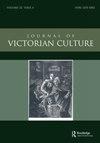“I have loved, O Lord, the beauty of thy house’: Magnificence and Catholic Architecture in Ireland, 1850–1900
IF 0.5
3区 历史学
Q2 HISTORY
引用次数: 0
Abstract
This article explores the deliberate invocation and communication of ideas of ‘magnificence’ by Catholic building projects across Ireland between 1850 and 1900. Through an analysis of the rhetoric and discourse surrounding the construction of three case studies in Tipperary, Limerick, and Armagh, the article identifies shared concerns with articulating architectural magnificence through drawing attention to the site, on architectural detail and formal style, and the high quality of building materials. This emphasis on magnificence is examined in terms of the need to justify and legitimate expansive and expensive building and re-building projects, which often relied heavily on fundraising from communities already under financial pressure. The symbolic importance of magnificence is also explored in the context of the increased focus on the church as the central location of Catholic life and worship in the second half of the nineteenth century. Finally, the decision by Catholics to invest in magnificent architectural styles that referenced the medieval cathedrals of France and the classical grandeur of Catholic Rome is repositioned. Rather that framing this as a diffuse architectural eclecticism, the use of these diverse historical exemplars is considered as part of the need to rebuild a ruptured Catholic architectural traditional in Ireland, and to create an architectural identity that expressed triumph over past adversity, as well as confidence in Ireland’s role in spreading the Catholic faith around the world.“主啊,我喜欢你的房子的美丽”:1850年至1900年爱尔兰的壮丽与天主教建筑
本文探讨了1850年至1900年间爱尔兰各地天主教建筑项目对“壮丽”理念的有意援引和交流。通过对蒂珀雷里、利默里克和阿马三个案例研究中围绕建筑的修辞和话语的分析,文章通过关注场地、建筑细节和形式风格以及建筑材料的高质量,确定了表达建筑华丽的共同关注点。这种对华丽的强调是从需要证明和合法化大规模和昂贵的建筑和重建项目的角度来考察的,这些项目往往严重依赖于已经面临财政压力的社区的筹款。在十九世纪下半叶,人们越来越关注教堂作为天主教生活和崇拜的中心位置,这也探讨了华丽的象征意义。最后,天主教徒决定投资于参照法国中世纪大教堂和天主教罗马古典宏伟的宏伟建筑风格,这一决定被重新定位。与其将其视为一种分散的建筑折衷主义,不如将这些不同的历史典范的使用视为重建爱尔兰破裂的天主教建筑传统的必要性的一部分,并创造一种表达战胜过去逆境的建筑身份,以及对爱尔兰在全世界传播天主教信仰中所起作用的信心。
本文章由计算机程序翻译,如有差异,请以英文原文为准。
求助全文
约1分钟内获得全文
求助全文

 求助内容:
求助内容: 应助结果提醒方式:
应助结果提醒方式:


